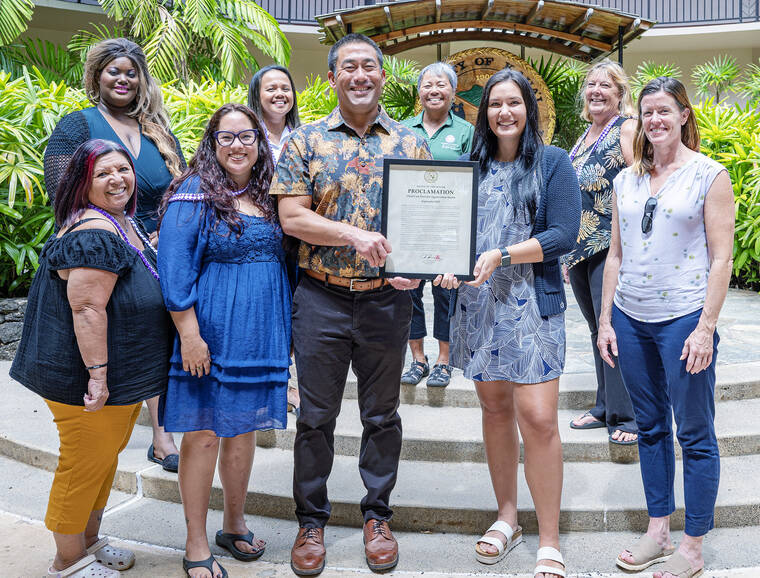LIHU‘E — Child care providers and the early learning sector on Kaua‘i play critical roles in the economy by supporting the workforce, said the Kaua‘i Planning &Action Alliance.
They build the foundation of brain development and learning for the island’s young children.
This was demonstrated in the real world when companies, and even the County of Kaua‘i, struggled to have employees return following the reopening of the county following the COVID-19 shutdown. Absenteeism rose as parents struggled with finding child care for their keiki, with a lot of the preschools still shut down because of the pandemic.
The July 2022 People Attentive to Children Child Care Capacity report shows there are 57 licensed providers on Kaua‘i, largely represented by private group child care centers and family child care homes.
The first-time recognition of child care providers was led by The Hawai‘i Early Childhood Advocacy as one of its 2022 legislative priorities.
A proclamation recently issued by Mayor Derek Kawakami recognizes and appreciates child care providers and raises awareness of the need for workforce development in early education.
The HECAA strengthens advocacy efforts to ensure all children have equitable access to affordable, culturally reflective, high-quality care and education.
“Supporting young keiki means supporting the workers who care for and educate them,” states a release from the KPAA. “The Hawai‘i state Legislature recognized the importance of early learning for our keiki and acknowledged the high costs associated with child care to many of our working families through HR62/SR48 during this past legislative session. Across the state, many families spend one-third of their income on costs associated with child care. Concurrently, the average wage of a child care professional is less than $30,000 a year.”
The Early Childhood Action Strategy reported that Hawai‘i’s fragile child care system has been devastated by the pandemic. In the state, challenges faced by the sector were amplified, including: increased costs to implement new health and safety requirements, loss of staff to other sectors, and decreased revenue from limited enrollment and capacity.
The KPAA partnered with Kamehameha Schools to specifically address the early childhood education sector on Kaua‘i through data-driven efforts to strategic decision making with the goal of enhancing systemic efficiency to increase access and enrollment for 3 and 4 year olds.
“Statewide efforts to ensure that our next governor will take care of our youngest keiki and their ‘ohana are supported by the non-partisan movement Commit to Keiki,” the KPAA said. “Commit to Keiki is focused on engaging with gubernatorial candidates to educate and encourage them to commit to three priorities, including child care and early learning, family violence prevention and early childhood mental health.”
Data from Commit to Keiki indicate that more than 80 percent of Hawai‘i voters believe that Hawai‘i’s next governor needs to support Hawai‘i’s youngest keiki and their ‘ohana by expanding programs and creating ongoing and committed funding streams. Currently, Hawai‘i ranks 47th in the nation in state spending on children.
•••
Dennis Fujimoto, staff writer and photographer, can be reached at 808-245-0453 or dfujimoto@thegardenisland.com.



We do need to support the needs of families with young children. I have seen the success of employers that have allowed parents to have some flexibility to attend to the needs of young children- I.E parent able to pick up child from preschool when needed, parent able to stay home with their child [with pay] when the child is sick and more. Employers who have allowed flexible support for their workers will have happier and committed workers!!!